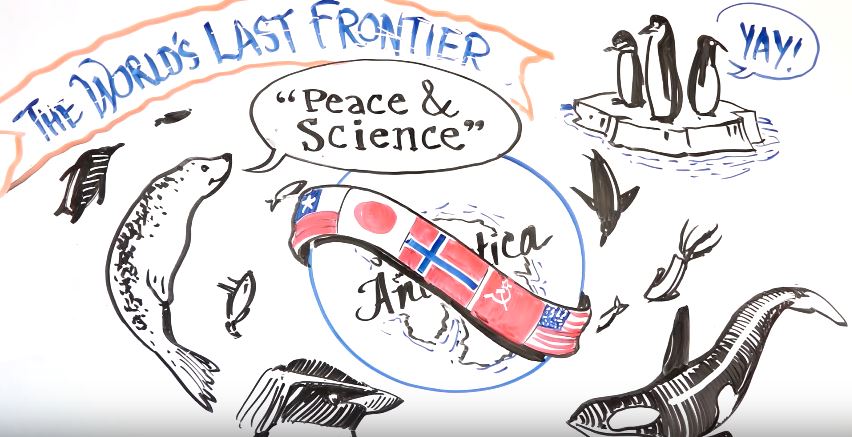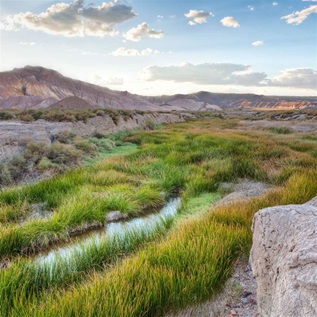How China Could Change the Future of Antarctica's Southern Ocean
Antarctica may be one of the coldest and harshest places on Earth, but it is teeming with life. This is especially true in the Southern Ocean, where penguins, whales, leopard seals, toothfish, and a plethora of other marine life have thrived, largely undisturbed by humans—due to both the region’s remote location and the existence of multinational agreements that limit fishing.
But this unique environment now faces a triple threat: industrial fishing, climate change, and an effort to undermine the protections originally agreed to by the Commission for the Conservation of Antarctic Marine Living Resources (CCAMLR) a consensus-based fisheries management organization established in 1982.
While no single country can unilaterally determine the fate of the Southern Ocean, one nation—China—can play a major role in helping to safeguard this stunningly beautiful region. China is one of 25 members of CCAMLR, which has a mandate to conserve marine life around Antarctica in accordance with a precautionary approach: allowing fishing only if it can be done without causing major disruption to Antarctica’s marine ecosystem. The global implications of Southern Ocean protections were discussed by Chinese President Xi Jinping and President Obama during Xi’s recent visit to the United States, and in a promising development, the White House and Chinese Ministry of Foreign Affairs publicly stated a commitment to working together on a marine reserve in the Ross Sea.
The Antarctic Treaty of 1959 had designated the continent as “a natural reserve, devoted to peace and science,” but assigned no such protections to the surrounding ocean despite its importance to terrestrial life. CCAMLR was formed specifically in response to increased commercial interest in Antarctic krill, a thumb-sized crustacean that is the base of the food chain in Antarctica and is the principal food source for penguins, whose numbers have been in decline in the Antarctic Peninsula.
And for decades, CCAMLR fulfilled its mandate commendably.
But fishing all over the world has become more competitive, with about 90 percent of all fish stocks overexploited. Chinese fleets, along with those of other nations, have looked to the Southern Ocean to fill the holds of their fishing vessels.
In fact, in a widely quoted statement earlier this year, Liu Shenli, chairman of the China National Agricultural Development Group, said, “We will increase our investment in the Antarctic area in terms of krill fishing. The Antarctic is a treasure house for all human beings, and China should go there and share.”
But on a positive note China is contributing to global knowledge of the Southern Ocean by opening more research stations in Antarctica to look at the effect of climate change on the ecosystem. Plans are also in place to build an airfield to provide easier access to scientists working in these remote areas.
In June, diplomatic and maritime leaders from the U.S. and China committed to work together to protect the oceans from a range of threats, including climate change, illegal fishing, marine pollution, and overfishing. And the meeting between the two presidents in September could have enormous implications on these issues, particularly as they pertain to the Southern Ocean.
The species-rich Ross Sea boasts one of the most intact marine ecosystems in the world, making it an invaluable place to study how a healthy ecosystem reacts to a warming and acidifying ocean and the steps that might be taken to minimize these threats. In 2014, CCAMLR countries discussed making 1.34 million square kilometers (517,000 square miles) of the Ross Sea off-limits to fishing while leaving most of the 3.6 million-square-kilometer (1.39 million-square-mile) area open to fishing—a significant compromise that would satisfy the need to fish while offering scientists a chance to study how fished and non-fished areas react to climate change. Unfortunately, China and Russia blocked the proposal, leaving it just shy of the consensus needed for any CCAMLR measure to become official.
CCAMLR will consider the proposed Ross Sea reserve again at its annual meeting this month in Tasmania, at which China can play a pivotal role by brokering support for the protection of the Ross Sea among countries with fishing interests in the region. A Ross Sea marine reserve would keep food webs intact, giving animals a chance to adapt to changing environments.
Officials in Beijing have begun to pay greater attention to conservation by taking significant steps to curb climate change, attracting more than $50 billion in clean energy investment, and aligning with conservationists on a campaign to reduce consumption of shark fin soup in China.
By supporting the Ross Sea MPA and agreeing to reasonable limits on krill fishing throughout the Southern Ocean, China would show environmental leadership on a world stage while helping to both safeguard one of the last pristine areas of the world’s oceans and ensure productive Antarctic fisheries for decades to come.
Andrea Kavanagh, director of the Global Penguin Conservation Campaign, wrote about China and the Southern Ocean on The Huffington Post.


This video is hosted by YouTube. In order to view it, you must consent to the use of “Marketing Cookies” by updating your preferences in the Cookie Settings link below. View on YouTube
This video is hosted by YouTube. In order to view it, you must consent to the use of “Marketing Cookies” by updating your preferences in the Cookie Settings link below. View on YouTube







